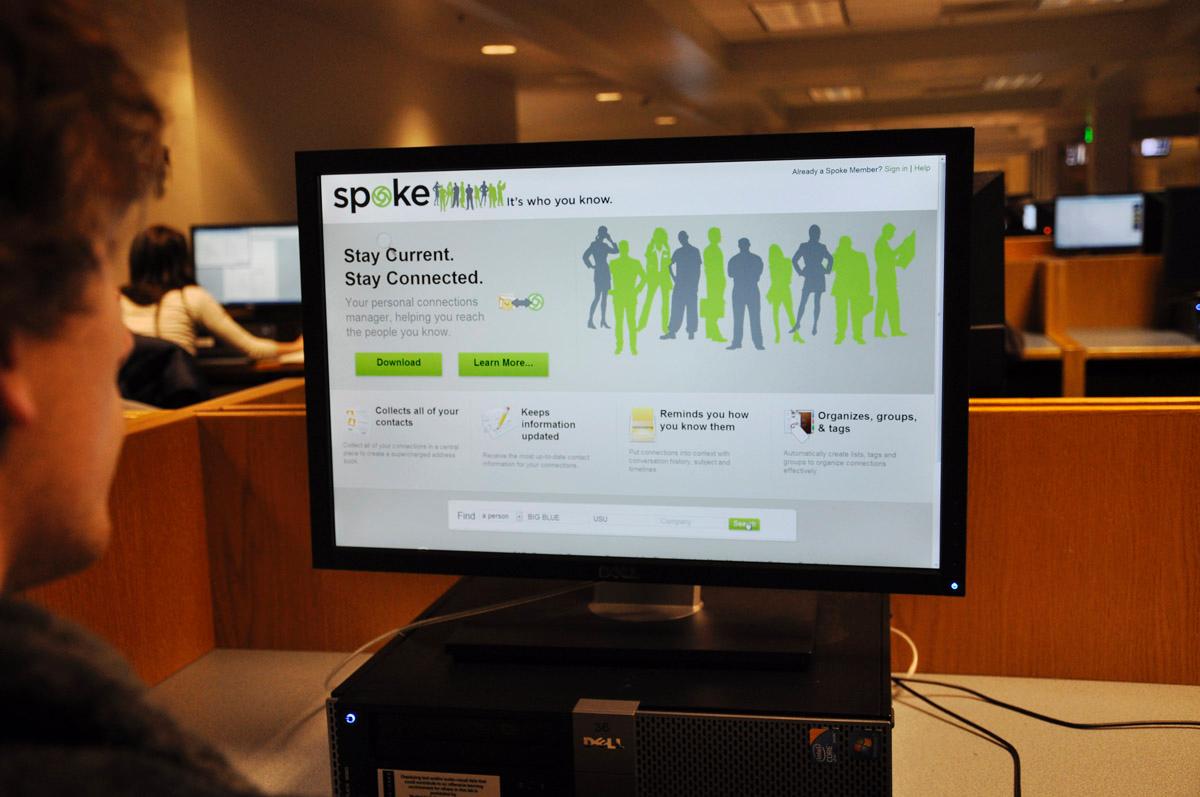Spokeo and friends means privacy endangered
The online wildfire of Egyptian protest coverage in recent weeks has proven that the Internet is a powerful tool. The use of such power, like tools in any social medium, is up to the discretion of the user. In a day and age ripe with Facebook scandal and identity theft, personal information appears to be becoming more public than private.
In 2005, Harrison Tang was a student at Stanford. Tang could not keep up with his classmate’s online activities, since they were all over MySpace, YouTube, and various blogging sites. As a result, Tang and some colleagues gathered in his parents’ basement and in the fall of 2006, they created the beginning of what is known today as Spokeo.com.
The initial plan was to create a “social-network aggregator to collect the information,” said Katie Johnson, media relations personnel for Spokeo, Inc. “They quickly discovered users’ real need was people search, and they expanded the site’s offering to meet this growing and widespread demand.”
Spokeo’s homepage boasts, “Not your grandma’s phonebook.” Spokeo varies from Google in that it is specifically a people-search engine, and draws information from both online and offline sources.
According to the site. Spokeo’s technology “has expanded beyond social-network search to include phone books, marketing surveys, business databases, e-commerce stores, and other public databases.” Other resources include government censuses, real estate listings, and mailing lists.
Some readers might recall last month’s murmur of concern spread around Facebook about such in-depth personal information available on Spokeo. However, Spokeo’s concept is not original, nor is it the first or only people-search engine online.
In fact, Spokeo is the seventh result on a google search for “people search,” behind Yahoo! People Search, whitepages.com and four others. Many people search engines are completely free, while others, like Spokeo, require paid memberships for full information access.
Though it could be alarming to think addresses and salary estimations are freely posted on the web, all of the information provided by Spokeo is already public. Rather than personally hunting down individual pieces of information on people, Spokeo does the work and compiles it into one spot.
“It’s important to understand … that offering a more efficient mechanism by which to pull together information is not the same as providing greater access to personal information,” Johnson said. Spokeo remains “highly sensitive to any concerns some may harbor concerning their privacy.”
Spokeo offers an option to remove one’s own listing for those who are unsettled by the publicity of their personal information. Johnson noted that only a “small, single digit percentage” of Spokeo users opt to remove their listings, though millions of people visit each month.
While reacting and removing one’s Spokeo listing is an option, another is to executively decide and control what personal information is made public in the first place. The rise of social networking metropolises like Facebook and Twitter have given way to an influx of information shared on the public forum of the Internet.
“When you have control over what you share, you want to share more. When you share more, the world becomes more open and connected,” Facebook founder Mark Zuckerberg wrote in a blog post in May 2010.
The post discussed new, more manageable privacy controls. Zuckerberg’s information does not appear to be listed on Spokeo.
Facebook offers a variety of customizable privacy settings. There are several preset privacy options as well. Users can choose for their content to be viewed by friends only, friends of friends, anyone or a mix of the three.
Facebook did not respond to a request for an interview. The contact link on Facebook leads to the Help Center, a page with dozens of links of various categories and subcategories for glitches, features and applications.
The privacy link details information on privacy policies and how to set various privacy settings. Names, profile pictures, gender and networks of Facebook users are always available for public searches and are therefore in the databases of people search engines like Spokeo. Additional information is only available for public search if the user specifies that it can be searched. Some details, such as friend lists and interests, show by default unless manually hidden.
According to the privacy help page, “allowing your friends to find you both on and off of Facebook may make your experience more meaningful.”
Internet safety can be controlled by a individual website or from the internet provider. On-campus Internet connection is provided by BlueZone and BlueZone secure. Bluezone secure encrypts any sent or accessed data, said IT service desk employee Elise Griffin, a junior in family consumer and human development.
“Our websites are very secure,” Griffin said.
Students’ A-numbers are public, but passwords, grades, addresses and e-mail addresses are all private. A security team watches BlueZone for fishy things like viruses and file-share programs, which are against university policy.
The university also offers McAfee anti-virus software free to students and, if a computer is in distress, full-time technicians are available to rid computers of viruses.
“With the Internet, really anything is available for anyone to view,” Griffin said. “While Facebook is great for social networking, it is important to remember that other people can see it. It’s important to be wise about what you put on there.”
Not only peers, but professors and current or future employers have access to Facebook postings. Griffin advised students not to post anything incriminating or immature, especially when looking for a job.
In a 2008 Wall Street Journal article, “New Sites Make it Easier to Spy on Your Friends,” by Vauhini Vara, Vara said of Spokeo and other people-search sites: “People are uncovering surprising details about colleagues, lovers and strangers that often don’t turn up in a simple Internet search.”
That was three years ago.
– noelle.johansen@aggiemail.usu.edu

